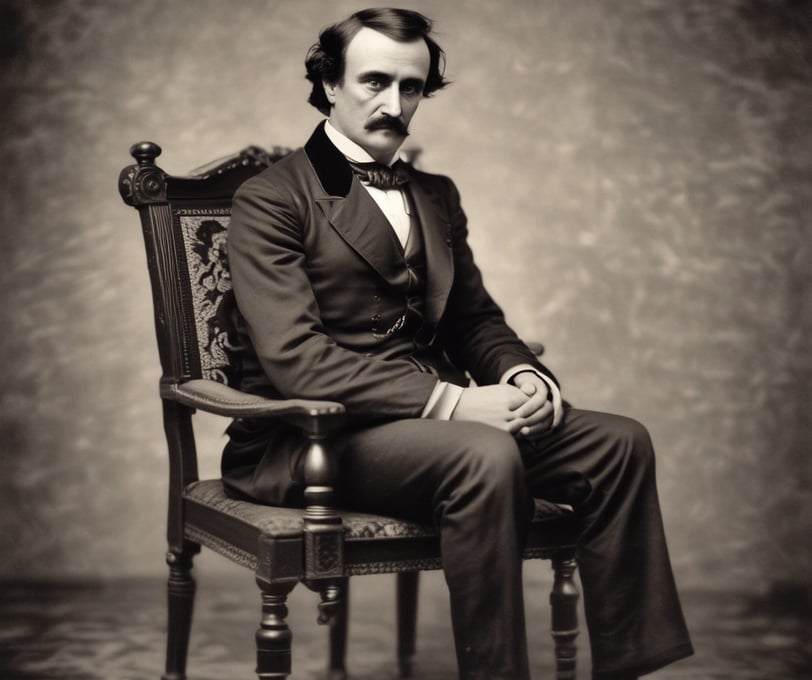
Get Your Copy of Edgar Allan Poe's Works
How Edgar Allan Poe Revolutionized the Mystery Genre
Discover how Edgar Allan Poe revolutionized the mystery genre with his groundbreaking detective stories, and inspired generations of crime fiction authors.
EDGAR ALLAN POE
12/26/20245 min read


The Birth of the Detective Story: Poe’s Groundbreaking Innovation
Before Poe, the concept of a detective story was virtually non-existent. There were crime narratives, but they lacked the structure and analytical depth that we associate with mystery tales today.
In 1841, Poe published “The Murders in the Rue Morgue,” a story that is widely considered the first modern detective story. This short tale introduced the world to C. Auguste Dupin, a sharp-witted detective who used logic and reasoning to solve a grisly double murder.
What Made “The Murders in the Rue Morgue” Revolutionary?
The Analytical Detective: Dupin was the prototype of the modern detective—an intellectual who relied on observation and deduction. Unlike previous crime narratives that centered on action or moral lessons, Poe’s story focused on the process of solving a mystery.
A Sidekick Narrator: The story is narrated by Dupin’s unnamed friend, who acts as a stand-in for the reader. This narrative device, later popularized by Sherlock Holmes and Dr. Watson, allows the audience to marvel at the detective’s brilliance while uncovering the mystery alongside them.
Clues and Red Herrings: Poe meticulously planted clues and distractions, creating a sense of intrigue and engagement for readers who wanted to solve the mystery themselves.
Poe didn’t just create a story; he established a blueprint for the detective genre, one that countless authors would follow and refine.
Themes That Defined Poe’s Mystery Stories
Poe’s mystery tales weren’t just puzzles to solve—they were explorations of deeper themes. By weaving philosophical and psychological elements into his narratives, Poe elevated the genre from mere entertainment to a form of art.
The Darkness of Human Nature
Poe believed that darkness resided in every human soul, and his stories often explored the motivations behind heinous acts. In “The Murders in the Rue Morgue,” the violence shocks not just because of its brutality but because it forces readers to confront the capacity for savagery.
The Fragility of Truth
Many of Poe’s stories delve into the idea that truth is elusive and subjective. The detective’s role, then, is to piece together a fragmented reality—a task that mirrors our own quest for understanding in a chaotic world.
Death and Mortality
Death looms large in all of Poe’s work, and his mystery stories are no exception. By centering his narratives around murders and crimes, Poe invites readers to grapple with their own fears of mortality.
C. Auguste Dupin: The Original Detective
Long before Sherlock Holmes dazzled readers with his deductive reasoning, there was C. Auguste Dupin. Appearing in three of Poe’s stories—“The Murders in the Rue Morgue,” “The Mystery of Marie Rogêt,” and “The Purloined Letter”—Dupin set the stage for every literary detective who followed.
What Made Dupin Unique?
Ratiocination: Dupin’s method of solving crimes, which Poe called “ratiocination,” was all about logical reasoning. He didn’t rely on brute force or intuition but instead pieced together evidence with meticulous care.
An Outsider Perspective: Unlike modern detectives who are often part of law enforcement, Dupin was an amateur sleuth who worked outside the system. This gave him the freedom to think creatively and challenge conventional methods.
A Gentleman Scholar: Dupin wasn’t just a detective—he was a cultured, intellectual man who enjoyed solving mysteries as a mental exercise.
Dupin’s character proved that a detective could be a thinker rather than a fighter, paving the way for iconic figures like Hercule Poirot, Miss Marple, and even modern-day detectives like Veronica Mars.
The Lasting Impact of Poe’s Mystery Stories
While Poe’s contributions to the mystery genre were groundbreaking, their influence extended far beyond his lifetime. Here’s how his work shaped the literary world and popular culture:
Inspiring the Golden Age of Detective Fiction
Poe’s formula for detective stories became the foundation for the Golden Age of Detective Fiction in the early 20th century. Authors like Agatha Christie, Dorothy L. Sayers, and Ellery Queen built on his ideas, creating intricate puzzles and larger-than-life sleuths.
The Rise of Sherlock Holmes
Arthur Conan Doyle openly acknowledged Poe’s influence on his creation of Sherlock Holmes. Dupin’s analytical mind and eccentric personality can be seen in every aspect of Holmes’ character, from his deductive reasoning to his love of solving seemingly unsolvable cases.
Modern Crime Thrillers
Even today, Poe’s impact can be felt in modern crime fiction. Shows like True Detective and novels by authors like Gillian Flynn echo his themes of psychological complexity and moral ambiguity.
Why You Should Read Poe’s Mysteries Today
If you’ve never read Edgar Allan Poe’s detective stories, you’re missing out on the roots of one of the most exciting genres in literature. Here’s why they’re worth your time:
Timeless Storytelling: Poe’s tales are as gripping today as they were in the 19th century. His intricate plots and vivid descriptions keep readers on the edge of their seats.
A Glimpse into History: Reading Poe is like traveling back to a time when the mystery genre was being invented. You’ll gain a deeper appreciation for the evolution of storytelling.
Dark, Thought-Provoking Themes: If you enjoy mysteries with a psychological edge, Poe’s stories offer a fascinating exploration of the human psyche.
Dive Deeper into Mystery Stories
Edgar Allan Poe may have started the detective genre, but he also opened the door to a world of captivating mysteries that continue to evolve. If you’ve been inspired by his stories, why not explore more classic and contemporary mysteries?
Start with Arthur Conan Doyle’s Sherlock Holmes series to see how Dupin’s legacy was expanded.
Explore Agatha Christie’s timeless whodunits like Murder on the Orient Express.
Try modern psychological thrillers like Gone Girl by Gillian Flynn or The Girl with the Dragon Tattoo by Stieg Larsson.
Reading mystery novels isn’t just about solving puzzles—it’s about exploring the intricacies of human nature, the thrill of the chase, and the satisfaction of uncovering the truth.
Conclusion: Poe’s Enduring Legacy
Edgar Allan Poe didn’t just write mysteries—he revolutionized storytelling. By creating the first modern detective and crafting tales that combined logic, suspense, and philosophical depth, he paved the way for an entire genre.
Whether you’re a longtime fan of mysteries or a newcomer to the genre, diving into Poe’s stories is a thrilling way to connect with the roots of crime fiction. So grab a copy of “The Murders in the Rue Morgue,” settle into your favorite reading nook, and prepare to be amazed by the genius who started it all.
And remember: The next time you crack open a mystery novel, you’re stepping into a world that Poe envisioned nearly two centuries ago. Isn’t that a mystery worth solving?
When we think of mystery stories—those tantalizing whodunits that keep us up at night—it’s easy to imagine contemporary bestsellers or classic novels from the likes of Agatha Christie or Arthur Conan Doyle. But if you trace the roots of the mystery genre, you’ll find one towering figure who laid the foundation: Edgar Allan Poe.
Known for his haunting tales and gloomy poetry, Poe was more than just a master of the macabre; he was the inventor of the modern detective story. His innovations not only shaped the mystery genre as we know it but also inspired generations of authors to explore the darker corners of human nature and the intricacies of solving a crime.
Let’s dive into how Edgar Allan Poe revolutionized the mystery genre and why his legacy is still alive and thrilling today.
